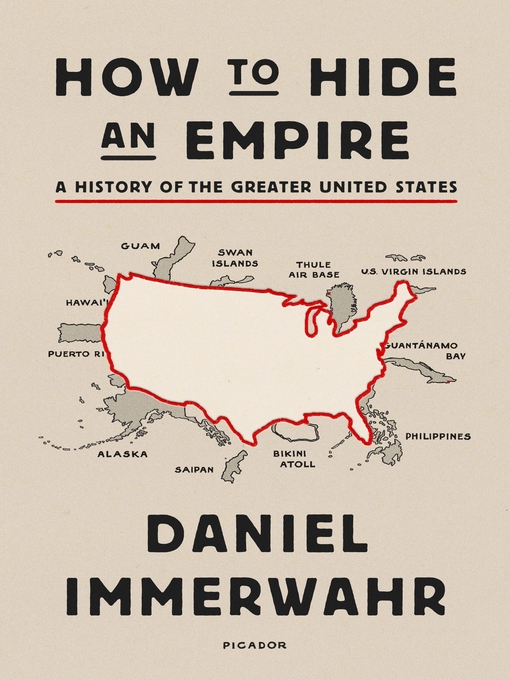
How to Hide an Empire
A History of the Greater United States
کتاب های مرتبط
- اطلاعات
- نقد و بررسی
- دیدگاه کاربران
نقد و بررسی

October 15, 2018
America extends far beyond the mainland.In a richly detailed, thoroughly researched history, Immerwahr (History/Northwestern Univ.; Thinking Small: The United States and the Lure of Community Development, 2015) chronicles the vast American empire from its vigorous westward expansion on the mainland to its reach around the world. Drawing on archival sources and much scholarship, the author engagingly depicts the nation's conquests, first displacing Native Americans, followed by the claiming of uninhabited islands, the spoils of war, and strategic locations. By World War II, territories comprised nearly one-fifth of America's land area. Unacknowledged by most mainland citizens, these possessions have been relegated "to the shadows," with the populaces, at various times, "shot, shelled, starved, interned, dispossessed, tortured, and experimented on." America's early forays abroad led to the annexation of small uninhabited islands--nearly 100 of them--that were piled high with bird droppings, coveted as fertilizer. In 1898, Spain's defeat in the Spanish-American War brought a bounty: the Philippines (which the U.S. bought), Puerto Rico, Guam (which came free), and Cuba, which the U.S. occupied under military control. Later, the Virgin Islands, Samoa, and various other sites in the Pacific became American territories, which today comprise around 4 million people "who have no representation in Congress, who cannot vote for president, and whose rights and citizenship remain a gift from Washington." Immerwahr animates the narrative with a lively cast of characters: brusque, egocentric physician Cornelius P. Rhoads, for example, who conducted medical experiments on Puerto Ricans, whom he deemed "the dirtiest, laziest, most degenerate and thievish race of men ever inhabiting this sphere." Standing up for colonists' rights--often to their frustration--were Ernest Gruening, governor of the territory of Alaska, and Douglas MacArthur, who led troops in the Philippines during WWII. Although the U.S. has divested itself of colonies, not needed in an era of economic globalization, the nation has invested heavily in military bases, which today number around 800. "The Greater United States," the author notes, "is in everyone's backyard."A vivid recounting of imperial America's shameful past.
COPYRIGHT(2018) Kirkus Reviews, ALL RIGHTS RESERVED.

February 1, 2019
What does bird guano and screw threads have to do with empire? Actually, quite a bit. Immerwahr (history, Northwestern Univ.$SPACE$Thinking Small) explores U.S. history by placing America's overseas colonies and their inhabitants front and center. He shows how westward expansion served as a starting point for America's imperial dreams. In the 1850s, the United States sought out and laid claim to hundreds of islands covered in bird guano, as the excrement reinvigorated soil that was depleted of nutrients. These same islands later served as fueling stations and airfields for America's military. After World War II, with American troops occupying bases around the world, the United States gave up its empire, granting independence to many of its former colonies, such as the Philippines. Immerwahr notes that the resistance of the colonized as well as U.S. technological advantages made an empire no longer necessary. Such advantage allowed America to force other countries to adapt its standards, such as the angle threads wrapped around screws. VERDICT Through archival and secondary source research, Immerwahr recasts American history in a new light in this thought-provoking and insightful work.--Chad E. Statler, Westlake Porter P.L., Westlake, OH
Copyright 2019 Library Journal, LLC Used with permission.

























دیدگاه کاربران